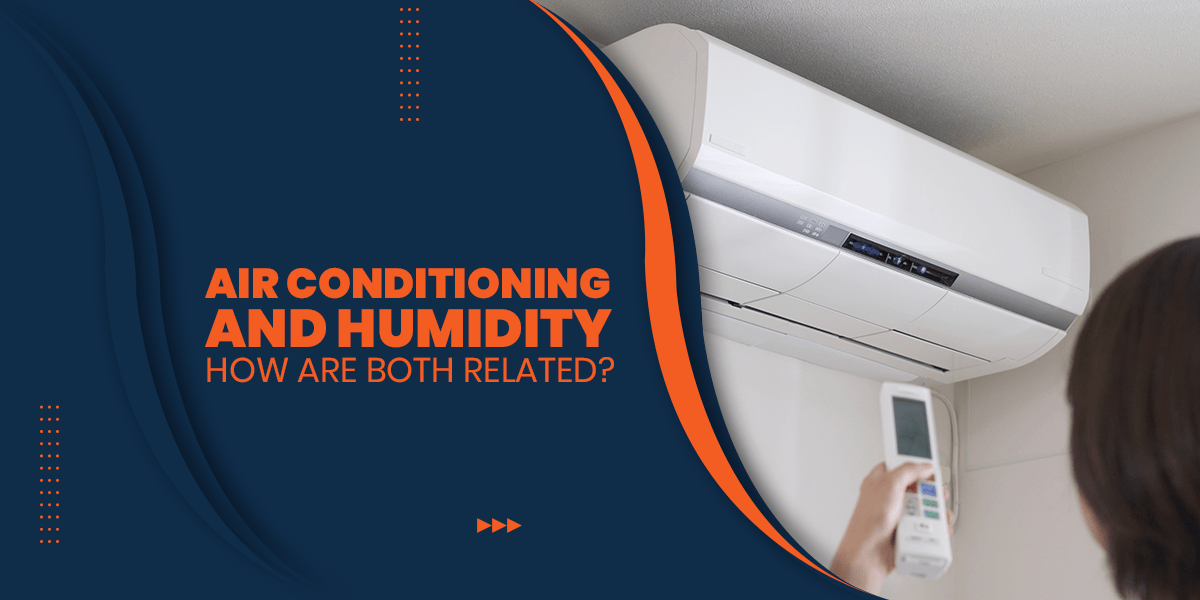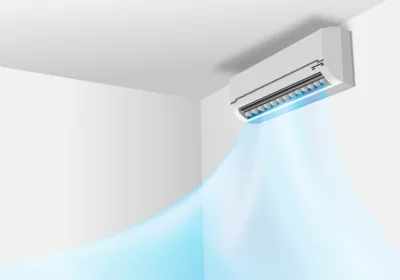
Air Conditioning And Humidity – How Are Both Related?
In the scorching summer heat, all that we look for is comfort. Previously, people used to switch on the fan to get comfort. However, with time and the development of technology, air conditioners have come up to our aid. Not only does it provide cool air, but also has made life much more comfortable than it was. Today, home air conditioning is an essential mechanism of our everyday lives. To maintain a conducive environment indoors, air conditioning plays a vital role.
Depending on your needs, you can use the air conditioner to create a warmer or cooler environment indoors. However, a question that boggles the minds of many is whether air conditioning has any connection to the humidity of the environment. Many times, people have noticed that it took time for the air conditioner to make the air cool when the air was more humid. Does this mean there is an innate connection between air conditioning and humidity?
Well, to find an answer to this question, you have come to the right place. in this blog, we will share with you the relationship between air conditioning and humidity. Along with it, you will also get to know a lot more about air conditioning. Therefore, without any further delay, let’s get started with the details of the blog.
How humidity affects your comfortable living?
To understand how humidity affects your comfortable living, you have to get hold of what humidity actually is. To put it simply, the days when you sweat a lot and feel suffocating appears to be the most humid day. this happens because the moisture for that particular day is high. Although you cannot see it, you can experience and feel it.
Again, when the humidity in the air is low, you tend to experience dry skin and respiratory issues. This is one of the most important reasons to maintain proper humidity levels. The primary function of air conditioning is to maintain a cool environment indoors. What most people are not aware of is it helps to maintain the humidity levels indoors as well.
Working of air conditioners in relation to humidity
The main goal of an air conditioner is to take the heat from indoors and eliminate it while releasing the cool air from its air conditioning system. To allow the formulation of this whole process, the manufacturers install these components in an air conditioner:
- Compressor
- Condenser
- Evaporator
- Expansion valve
Each of these components plays a significant role to propagate the exact mechanism of air conditioning. The function of a compressor is to squeeze the gas formed in the refrigerant and push it toward the condenser. Next, the condenser makes this refrigerant gas cool by eliminating heat into the air released outside. After this, the refrigerant gas passes on to the expansion valve, which further reduces the temperature and pressure.
By this time the refrigerant becomes cold and smoothly flows into the evaporator. During its stay in the evaporator, the refrigerant gathers all the heat emanating from the indoor air and uses its mechanism to cool it down. This is a vital step where humidity plays an interesting role.
To dehumidify the air gathered from indoors, the evaporator uses its evaporator coil to condense the air. First, the moisture in the air gets stuck to the cold surfaces of the condenser and then evaporates soon. As a result, it eliminates moisture from the air and lowers the level of humidity.
Can all air conditioners control humidity?
If you want your air conditioner to control the humidity inside, make sure to invest in an air conditioner of the right size. Yes, the size of the air conditioner indeed affects its humidity-controlling capacity. You cannot expect a window air conditioner to function well for a large bedroom.
To ensure that your air conditioning system helps to eliminate the humidity inside the room make sure to invest in a product that has sufficient power. This power of the air conditioner will help it to move and circulate the cool air into your space.
If you are clueless about the proper size of the air conditioner you can take help from a professional HVAC specialist. He will take into consideration the climate zone in which you live as well as the size of your home to calculate the appropriate size of air conditioner that can yield you proper benefits.
How beneficial is air conditioning to control humidity?
The various benefits of using an air conditioner to control humidity include the following:
- It helps to improve the air quality inside the room and makes it free from bacteria and other microorganisms.
- It keeps the indoor environment away from the growth and development of mold and mildew.
- It enhances the comfort level.
- It reduces there is of heart diseases.
Conclusion
Therefore, installing domestic air conditioning not only helps to control the humidity indoors but also improves your quality of living. If you want to install an air conditioning system at home, make sure to purchase it from the right place. Also, invest in an air conditioner of the proper size to control the humidity indoors.















